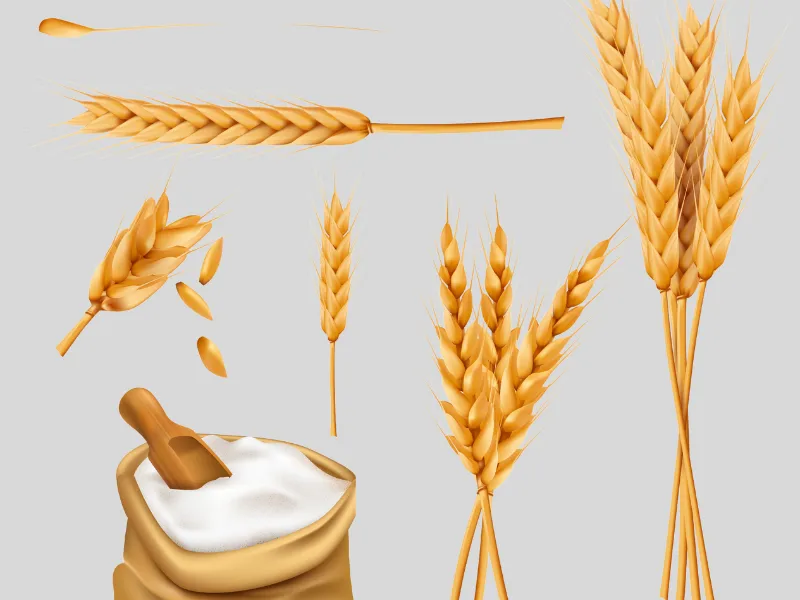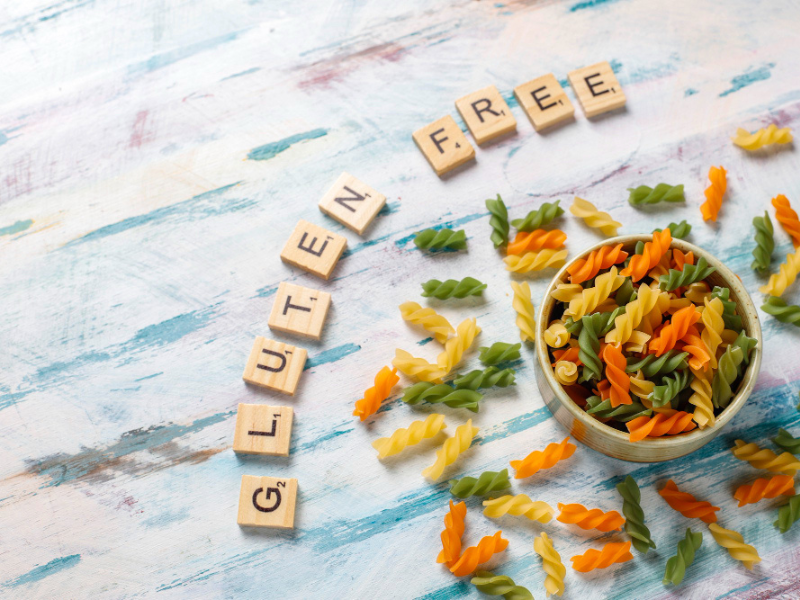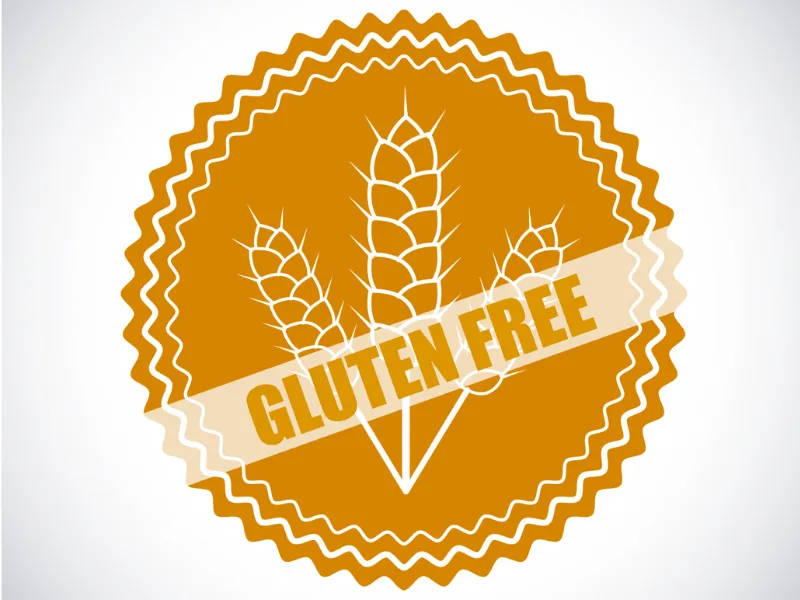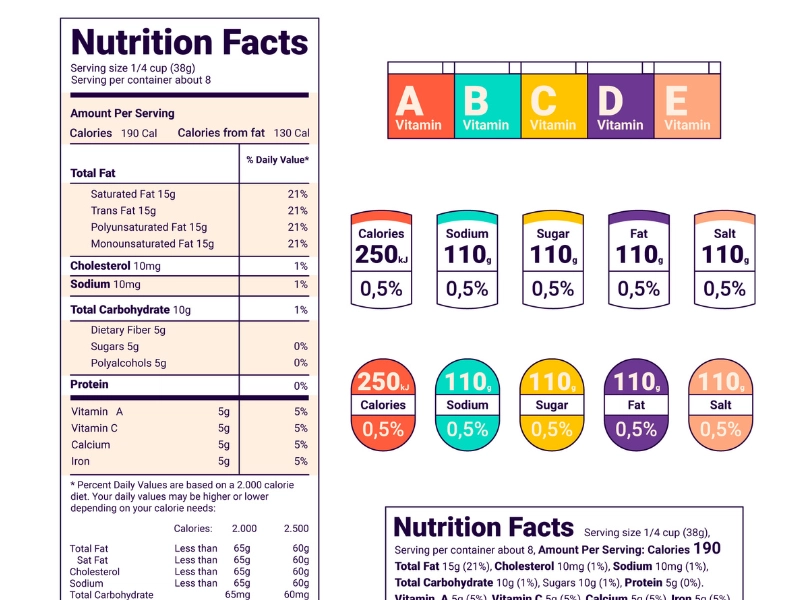Is Gluten-Free Food Good For Diabetics?
Published: 19 Apr 2025
Have you ever wondered, “Is gluten-free food good for diabetics, or is it just another health trend? With so much misinformation around gluten-free diets, it’s easy to feel lost.
Today, we’ll clear up the confusion and show you exactly who should eat gluten-free and who shouldn’t. Stick around to find out the real truth before you change your diet.
1- What Exactly is Gluten, and Who Needs to Avoid It?
Gluten is a protein found in wheat, barley, and rye. It’s what makes bread stretchy and chewy.

Why Some People Avoid Gluten:
- Celiac Disease:
An autoimmune condition where gluten damages the small intestine. (1) - Non-Celiac Gluten Sensitivity:
Causes gut symptoms like bloating, diarrhea, or stomach pain without damaging the intestine.
Important:
Doctors often recommend that most people with diabetes don’t need to avoid gluten, unless they have been diagnosed with celiac disease or gluten sensitivity. (2)
2- So, is Gluten-Free Food Good for Diabetics?
- Most medical experts agree that Gluten-free food isn’t automatically the best choice for people with diabetes. In fact, some gluten-free options can actually cause a spike in blood sugar levels. (3)

- Here’s what I’d personally recommend based on research that gluten-free doesn’t always mean healthier. In fact, many gluten-free products are packed with sugar, refined starches, and unhealthy fats, which can make diabetes harder to manage.
Want to learn more about how gluten affects blood sugar and the best choices for a diabetes-friendly diet? Keep reading the full article to uncover everything you need to know!
If you have diabetes and gut problems (like bloating, diarrhea, or stomach pain), talk to your doctor about testing for gluten sensitivity.
Don’t fall for the gluten-free hype. Learn which options could be spiking your blood sugar.
| 3- The Hidden Dangers of Processed Gluten-Free Foods |
|---|
Imagine eating a slice of gluten-free bread and a slice of whole-grain bread.
Many gluten-free products are:
|
Many people ask me about this, and my answer is always the same: a gluten-free label doesn’t mean “healthy”. Always check the nutrition facts first.

4- Should Diabetics Ever Choose Gluten-Free Options?
4.1 When it makes sense:
- You have been diagnosed with celiac disease (which is more common in type 1 diabetes)
- You have gluten intolerance with clear symptoms like bloating, diarrhea, or stomach pain
Avoid heavily processed gluten-free snacks that can spike your sugar!
Always focus on whole foods first. They are better for your blood sugar and gut health.
| 5- The Best Gluten-Free Foods for Blood Sugar Control |
|---|
I have personally reviewed studies on this and found some great gluten-free foods that are also kind to your blood sugar:
|
Always pair carbs with healthy fats (like avocado or olive oil) or proteins (like chicken or eggs) to slow down sugar spikes and feel full longer!
Ready to make smarter choices? Keep reading for expert tips on balancing your diet and managing diabetes.
6- How to Choose Safe Gluten-Free Products: A Simple Guide
Medical professionals usually suggest that choosing the right gluten-free products can be tricky, but here are some simple tips to help you pick wisely:
- Check total carbs and added sugars
Always look at the nutrition label to see how many carbs and sugars are in a serving.
- Prefer high-fiber options
Fiber helps slow down sugar absorption and keeps you feeling full longer.
- Watch portion sizes
Gluten-free doesn’t mean “unlimited.” Keep portions in check to avoid blood sugar spikes.
- Don’t trust the label, trust the ingredients list
Just because something says “gluten-free” doesn’t mean it’s good for you. Always read the ingredients to spot hidden sugars or unhealthy fats.

When in doubt, choose whole foods. Fruits, vegetables, and whole grains are naturally gluten-free and great for blood sugar.
7. Real-Life Stories: What Diabetics Are Saying About Gluten-Free Diets
The following are the real-life experiences shared by different people on Reddit:
- One Reddit user shared their dilemma, asking if gluten-free substitutes might worsen their blood sugar levels. They’re considering a gluten-free diet for PCOS but are unsure if it’s worth the change.
- The responses varied, with some people suggesting that gluten-free doesn’t necessarily mean healthier, especially when substitutes like rice flour or tapioca starch are used in processed products, which can cause blood sugar spikes.
- For instance, one user mentioned switching to zucchini noodles as a low-carb pasta alternative for better blood sugar control. Another user shared their experience with red lentil pasta, which provided a lower blood sugar spike compared to other options.
- Others emphasised the importance of checking labels and monitoring the carb-to-fiber ratio of gluten-free products, with some noting that processed gluten-free foods could be just as problematic for blood sugar as their wheat counterparts.
- Many agreed that it’s crucial to experiment with different options, as some gluten-free alternatives may work better for some people while causing issues for others.
- A common suggestion was to pair carbs with healthy fats or proteins to slow the absorption of sugars and reduce spikes.
If you’re unsure whether a gluten-free diet could work for you, it’s essential to test different foods and observe how your body responds, just like many of these users did.
But always remember to consult with your healthcare provider for personalised advice.
Curious to learn more? Check out our related articles for more smart tips on managing diabetes and making healthier food choices.
Conclusion: Is Gluten-Free Food Good For Diabetics?
So, guys, in this article, we’ve covered the question, Is Gluten-Free Food Good For Diabetics? in detail. As we’ve seen, gluten-free food isn’t automatically better for diabetics, and it’s important to be cautious of hidden sugars and carbs in many gluten-free products.
My recommendation is to focus on naturally gluten-free foods, like vegetables, quinoa, and nuts, which are excellent for blood sugar control. If you’re unsure, always consult your healthcare provider before making changes to your diet.
Found this helpful? Share it with your friends
8. FAQs: Is Gluten-Free Food Good For Diabetics?
Not unless you have celiac disease or gluten sensitivity. Most people with diabetes can eat gluten without problems. Just focus on healthy, whole foods for blood sugar control.
Not necessarily. Many gluten-free foods are high in carbs and sugar, which can cause blood sugar spikes. It’s more important to focus on whole, high-fiber foods for better blood sugar management.
It depends on the brand. Some gluten-free breads are packed with sugar and refined carbs, which can raise blood sugar. Check the nutrition label to ensure it’s low in carbs and high in fiber.
Foods like quinoa, brown rice, sweet potatoes, leafy greens, and beans are naturally gluten-free and excellent for blood sugar control. They’re also packed with nutrients and fiber.
It’s okay in moderation, but be careful. Many gluten-free snacks are loaded with sugar and unhealthy fats. Always check the label for hidden carbs and sugars.
Gluten intolerance causes digestive issues and discomfort, but it doesn’t damage the intestines like celiac disease does. Celiac disease is an autoimmune condition where gluten triggers harmful reactions in the body.
Yes! Gluten isn’t the problem for most diabetics; it’s about choosing healthy foods and managing carbs. You can still eat gluten if you focus on a balanced, nutrient-dense diet.
Look for products with low carbs, no added sugars, and high fiber content. Always read the ingredient list, not just the label, to avoid hidden sugars and preservatives.
No, not necessarily. Many gluten-free foods are highly processed and contain hidden sugars and unhealthy fats. Always choose whole, unprocessed gluten-free foods for better health benefits.
Yes, it’s a good idea. If you think gluten is affecting your health, your doctor can help determine if you have gluten sensitivity or celiac disease and guide you on the best diet plan for diabetes management.
9- References
At MedicaWire, all medically sensitive content is reviewed by licensed healthcare professionals. Our team ensures that the information you read is accurate, up-to-date, and based on trusted medical sources.
Learn how we maintain high standards by reading our Editorial Policy.
📚 Sources
1- Niland, B., & Cash, B. D. (2018). Health Benefits and Adverse Effects of a Gluten-Free Diet in Non–Celiac Disease Patients. Gastroenterology & Hepatology, 14(2), 82. https://pmc.ncbi.nlm.nih.gov/articles/PMC5866307/
2- Medical News Today– Are gluten-free diets good for diabetes?
https://www.medicalnewstoday.com/articles/326199
3- ADA- Should People with Diabetes Follow a Gluten-Free Diet?
https://diabetes.org/food-nutrition/food-and-diabetes/gluten-free-diet
4-Healthline- 8 Evidence-Based Health Benefits of Quinoa
https://www.healthline.com/nutrition/8-health-benefits-quinoa
ℹ️ Our Promise
MedicaWire follows strict sourcing guidelines and only references peer-reviewed studies, academic institutions, and reputable medical associations. We update content regularly to reflect new health information.

- Be Respectful
- Stay Relevant
- Stay Positive
- True Feedback
- Encourage Discussion
- Avoid Spamming
- No Fake News
- Don't Copy-Paste
- No Personal Attacks



- Be Respectful
- Stay Relevant
- Stay Positive
- True Feedback
- Encourage Discussion
- Avoid Spamming
- No Fake News
- Don't Copy-Paste
- No Personal Attacks




